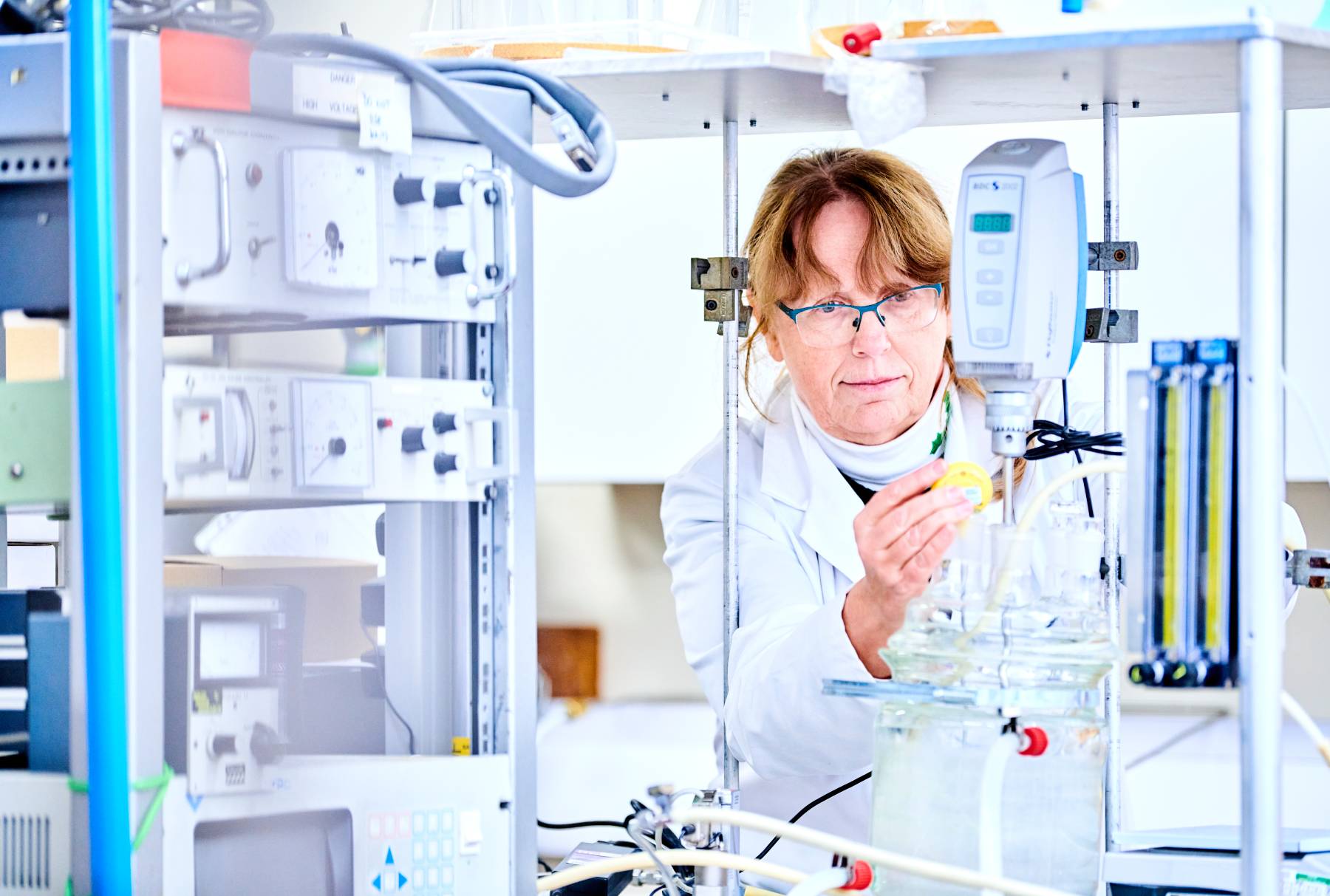Staff Profile
Dr Kelly Jobling
Research Associate
- Email: kelly.jobling@ncl.ac.uk
- Address: School of Engineering,
Room 3.17, Cassie Building,
Newcastle University,
Newcastle Upon Tyne,
NE1 7RU
Introduction
I am a molecular microbiologist applying my expertise to environmental engineering challenges that intersect human and environmental health. My work focuses on wastewater-based monitoring for health protection, tackling antimicrobial resistance through a One Health lens, and improving microbial methods to support chemical persistence testing. I bring molecular-level insight to real-world systems, helping to develop evidence-based strategies with impact across public health, environmental policy, and chemical risk assessment.
Qualifications
PhD Molecular Microbiology, Dept. Biological Sciences (University of Edinburgh, 2014)
MSc by Research, Infectious Diseases (University of Edinburgh, 2009)
BSc (Hons), Microbiology and Infection (University of Edinburgh, 2008)
More Information
LinkedIn https://www.linkedin.com/in/kelly-jobling-9a645510b/
Google Scholar Kelly Jobling - Google Scholar
Biodegradation test methods based on increased cell concentrations - International Collaboration on Cosmetics Safety (ICCS)
My role focuses on evaluating the viability and composition of microbial communities to be used in biodegradation tests. I am developing approaches to assess live versus dead microorganisms following concentration processes, investigating the impact of these methods across different inoculum sources such as activated sludge, marine and freshwater environments. This aims to support the development of more robust biodegradation testing by improving understanding of how inoculum preparation influences microbial activity and test outcomes.
Recent Projects
National Covid-19 Wastewater Epidemiology Surveillance Program (N-WESP)
Tackling AMR in Wastewater Systems with Sneaky Bacteria
Empower: Identifying best practice for empowerment through entrepreneurial freedom: A project for the marginalized in informal settlements in Delhi. India
Towards next-generation AMR surveillance: Assessment of novel technologies with high-throughput and multiplexing potential (TEXAS) - jpiamr (TEXAS – JPIAMR)
AMRflows UK-India project: antimicrobials and resistance from manufacturing flows to people: joined up experiments, mathematical modelling and risk assessments
-
Articles
- Hirst RW, Giesen MJ, Peppa MV, Jobling K, Jadhav D, Ahammad SZ, Namdeo A, Graham DW. Modeling of Air Quality near Indian Informal Settlements Where Limited Local Monitoring Data Exist. Atmosphere 2024, 15(9), 1072.
- Jobling K, Quintela-Baluja M, Hassard F, Adamou P, Blackburn A, Term Research Team, McIntyre-Nolan S, O'Mara O, Romalde JL, Di Cesare M, Graham DW. Comparison of gene targets and sampling regimes for SARS-CoV-2 quantification for wastewater epidemiology in UK prisons. Journal of Water and Health 2024, 22(1), 64-76.
- Quintela-Baluja M, Jobling K, Graham DW, Tabraiz S, Shamurad B, Alnakip M, Böhme K, Barros-Velázquez J, Carrera M, Calo-Mata P. Rapid Proteomic Characterization of Bacteriocin-Producing Enterococcus faecium Strains from Foodstuffs. International Journal of Molecular Biosciences 2022, 23(22), 13830.
- Quintela-Baluja M, Jobling K, Graham DW, Gomez-Lopez M, Romalde JL, Barros-Velázquez J, Calo-Mata P, Thrash JC. Nearly Complete Genome Sequence of Raoultella ornithinolytica Strain MQB_Silv_108, Carrying an Uncommon Extended-Spectrum-β-Lactamase-like blaBEL Gene. Microbiology Resource Announcements 2022, 11(11), e01012-22.
- Quintela-Baluja M, Jobling K, Graham DW, Alnakip M, Böhme K, Barros-Velázquez J, Calo-Mata P, Newton IRG. Draft Genome Sequences of Two Bacteriocin-Producing Enterococcus faecium Strains Isolated from Nonfermented Animal Foods in Spain. Microbiology Resource Announcements 2022, 11(11), e00866-22.
- Quintela-Baluja M, Frigon D, Abouelnaga M, Jobling K, Romalde JL, Gomez Lopez M, Graham DW. Dynamics of integron structures across a wastewater network – Implications to resistance gene transfer. Water Research 2021, 206, 117720.
- Sherwood JE, Fraser S, Citron DM, Wexler H, Blakely G, Jobling K, Patrick S. Multi-drug resistant Bacteroides fragilis recovered from blood and severe leg wounds caused by an improvised explosive device (IED) in Afghanistan. Anaerobe 2011, 17, 152-155.
- Patrick S, Jobling KL, O'Connor D, Thacker Z, Dryden DTF, Blakely GW. A unique homologue of the eukaryotic protein-modifier ubiquitin present in the bacterium Bacteroides fragilis, a predominant resident of the human gastrointestinal tract. Microbiology 2011, 157, 3071-3078.
